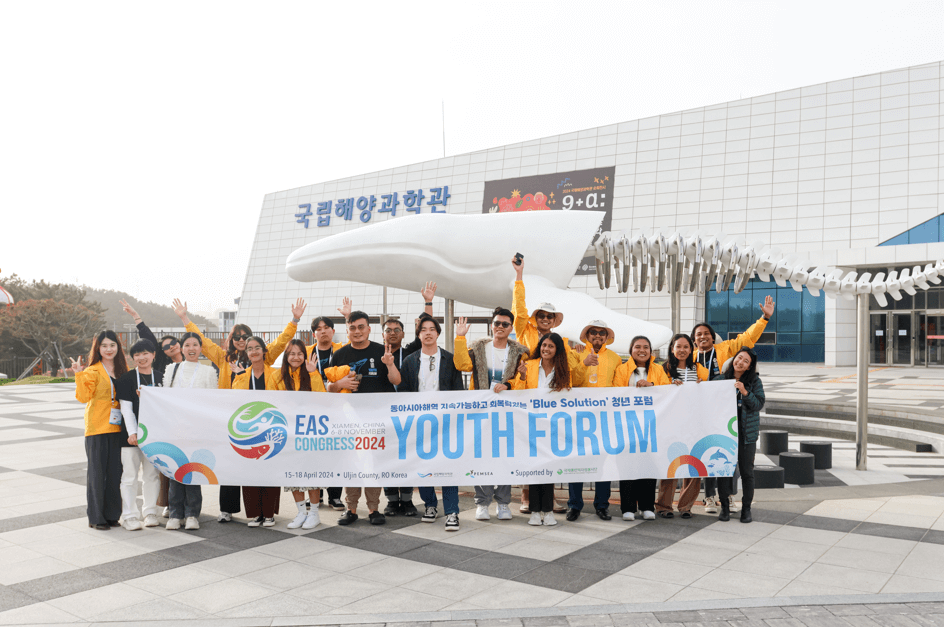PNLG Forum: Too Much Water; Too Little Water; Too Polluted Water
Monday, 5 January 2009

Sihanoukville, Cambodia — The PEMSEA Network of Local Governments for Sustainable Coastal Development (PNLG), which held its seventh annual forum in Sihanoukville, Cambodia on 19-21 November 2008, tackled water resources protection, utilization and management issues and challenges at the local government level. In sum, for local governments across the region, water supply and management are regarded as increasingly critical aspects of sustainable development due to changing weather patterns, migration to coastal areas, pollution and overexploitation of freshwater sources, and changes in consumption and use patterns.Dr. Mok Mareth, Senior Minister and Minister of the Environment opened the PNLG Forum with the message that, since the health and growth of a nation is anchored in its water resources, water resource management must be considered within the broader framework of economic and social development. Dr. Mok highlighted the critical role of the local governments in implementing national policies, strategies and programs on water resources management.The forum included an exchange of experiences on water resource management among the experts and representatives from the various local governments. The experiences of Phnom Penh Autonomous Water Supply Authority in initiating a culture of change within the organization and transforming a decrepit water supply system into a model public sector water utility that provides round the clock drinking water to Phnom Penh's inhabitants is exemplary. Only a quarter of the population used to receive piped water in 1993. Water service now covers 90 percent of Phnom Penh area and its population. Dr. Ek Sonn Chan, General Director of PPWSA, emphasized that the support from the Government of Cambodia and its development agencies is crucial in allowing tariff restructuring and rendering PPWSA operational and financial autonomy.Macao Water, on the other hand, shared its experiences in achieving sustainable water supply through private and public partnership. According to Dr. Fan Xiaojun, Executive Director, the partnership started in 1985 when Sino-French Holdings Ltd. bought 85 percent of Macao Water and signed a 25-year concession contract with the Macao government. The partnership boosted the utility's performance and infrastructures producing a 24-hour supply of safe drinking water to Macao residents in less than five years. By the 1990s, the entire water treatment and distribution system has been fully automated. Sino-French Holdings' successful experience in Macao has become an example of a good PPP model that is worthy of replication to the rest of China and in the region.The case studies from Bali (Indonesia), Selangor (Malaysia), Shihwa (RO Korea), Chonburi (Thailand), and Danang (Vietnam) illustrated the different approaches taken by local governments for water management. Bali utilizes a traditional system called Subak in managing its water resources, particularly for agriculture. Subak is a socio-agricultural and religious community custom organization with the authority to ensure equity of water allocation among its members. There are 1,610 Subak in the whole of Bali Province. Selangor, on the other hand, utilizes an integrated river basin management approach in ensuring sufficient and clean water supply, in improving storm water management as well as protecting and conserving the fireflies' habitat, which are touted to indicate good water quality. The Shihwa Lake experience focuses on improving the water quality of the lake through the construction of tidal power plant to increase seawater exchange and in managing non-point pollution sources for long-term watershed management. Chonburi and Danang are addressing challenges in water use management through the implementation of priority action programs identified in their respective coastal strategies. Activities ranged from raising awareness and building capacity on waste management within the communities and along the watershed areas and promoting sustainable water use to address potential water shortage problem. Despite the differences, all have a common goal, that is, to establish a water resource management system that serves society's needs efficiently and equitably, at the same time promoting the sustainable conservation of water resources.The Municipal Government of Sihanoukville handed over the PNLG flag to the Province of Bataan (Philippines) who confirmed its commitment to host the 2009 Forum to carry on the tradition of rotating the hosting of the PNLG Forum among the member local governments. The 2009 PNLG Forum will be held as one of the side events of the East Asian Seas Congress 2009 in Manila.



